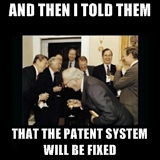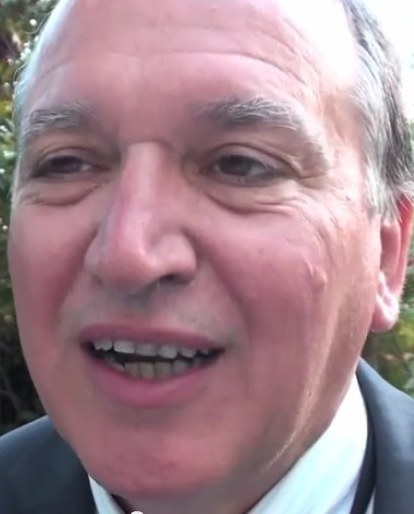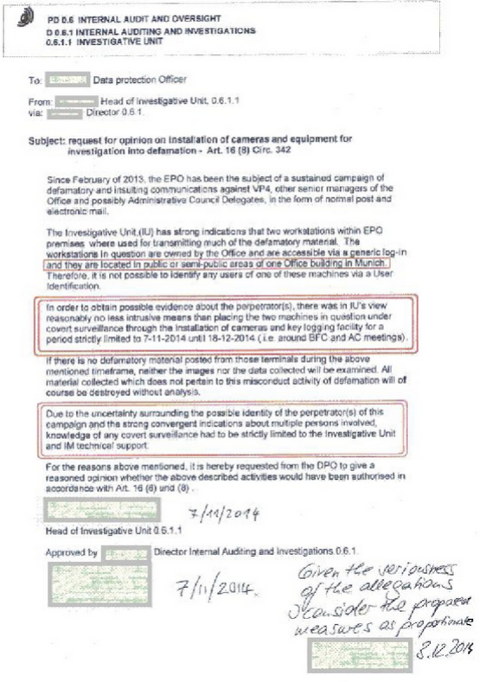06.17.15
Posted in America, Patents at 5:30 am by Dr. Roy Schestowitz
 Summary: Corporate media continues its obsession with a so-called ‘reform’ that simply is not; it’s an accelerated passage of wealth to large corporations
Summary: Corporate media continues its obsession with a so-called ‘reform’ that simply is not; it’s an accelerated passage of wealth to large corporations
THE so-called ‘PATENT Act’, as we have explained before [1, 2, 3, 4], won’t tackle the big abuses but only solidify them. The biggest abusers will become more powerful.
“These are not reforms. These are reminders that corporations still get whatever they please in Washington.”US politicians, who are funded by the biggest abusers, happily let nothing substantial change (definitely not scope of patenting at the USPTO). The House Committee lets through the so-called ‘Innovation Act’, another misleadingly-named output of lobbyists and corporations that they work for. There are news headlines that mention the corporations-leaning brand ('Innovation Act') by name [1, 2, 3, 4, 5, 6, 7, 8, 9] and many more that do not [1, 2, 3, 4, 5, 6, 7, 8, 9, 10, 11, 12, 13, 14, 15, 16, 17, 18, 19, 20, 21, 22]. Having reviewed these, we discourage our readers from wasting time on these. What we have here is fee shifting (legal costs) to the smaller entities that already struggle with such fees, unlike large corporations (they have full-time staff for that). If there’s any ‘reform’ here, it’s just the empowerment of large corporations. “America Invents Act Cost the US Economy over $1 Trillion,” says this alarmist headline from Patently-O. It’s a propaganda piece from “President of New England Intellectual Property, LLC” (legal firm) and we are surprised that even Dennis Crouch, who runs the site, let in such sensationalist BS. The ‘reform’ is more about passage of wealth. More to the billionaires, less to the rest of us. The farcical claim of “Cost the US Economy over $1 Trillion” reminds us a great deal of anti-Snowden propaganda with similar kinds of headlines (alluding to estimated ‘costs’ or losses incurred bt the NSA leaks).
The PATENT Act (not Patent Reform) has been reduced into something which everyone is happy with, except the public. Corporate coup is what it really is and as TechDirt correctly points out, it has “basically been watered down to nothing”. Apart from this good article from TechDirt (the corporate media and lawyers’ sites are largely off point) there is also this piece from Brian Fung, who wrote: “The head of a powerful House committee faces a potential revolt from fellow lawmakers — some of them from within his own party — who believe a bill targeting abusive patent lawsuits is being watered down.”
Really? It took them this long to realise that lobbyists have hijacked and diluted every meaningful change that does not aid corporations?
Whether these so-called ‘reforms’ pass or not isn’t all that important. These are not reforms. These are reminders that corporations still get whatever they please in Washington. The system is rigged. █
Permalink
 Send this to a friend
Send this to a friend
Posted in Apple, Free/Libre Software, Microsoft, Patents at 4:44 am by Dr. Roy Schestowitz
Summary: A quick roundup of news of interest about patent abusers, especially those who jeopardise the freedom of software
“Ray Niro, one of the lawyers who pioneered the wave of contingent-fee patent litigation, says he’s ready to exit the business,” according to an article cited by a patent trolls expert. Given all the things we have seen coming from Niro, this sure seems like a relief. As Mike Masnick put it: “Anyone remember Ray Niro? He’s the lawyer who so perfected patent trolling that the term “patent trolling” was first used (by future patent troll Peter Detkin) back in the 1990s to describe… Ray Niro for his lawsuits. Niro was the original uber patent troll, demanding settlements and suing all sorts of people. Perhaps his most famous move was that he had control over a patent that he argued covered any use of a JPEG image — and would use it to go after basically anyone who displeased him (if they had any JPEGs on their websites). This included the Green Bay Packers and a resort in Florida. When noted patent system critic Greg Aharonian described that patent as “crap,” Niro sued him for infringing on it as well. Niro also put a bounty on the identify of an (at the time) anonymous blogger who called himself the “Patent Troll Tracker.””
Meanwhile, the world’s largest patent troll IV (which now targets companies that distribute Android) fights more companies in court (not through shell entities/proxies but directly) and another infamous troll, Vringo, targets ZTE (which also distributes Android). Vringo has been behind plenty of anti-Android and anti-Google actions. There are Microsoft connections as we pointed out before (Microsoft gave Vringo patents with which to attack Microsoft’s competition), just like in IV’s case.
Microsoft itself is now being accused of infringing on ‘out-of-band’ patents. As the Washington Examiner put it: “A New Jersey-based software company has filed a lawsuit against Microsoft Corp., alleging the computer giant is infringing on three of its patents.
“StrikeForce Technologies Inc., headquartered in Edison, N.J., filed its lawsuit against Microsoft in the U.S. District Court for the District of Delaware June 5.”
Apple, being Apple, is hoarding more patents and its promotion sites celebrate this [1, 2, 3], even if Apple is a patent aggressor with a notorious track record (especially against Samsung). Samsung too is making headlines for some of its latest patents (Samsung is one of the top companies when it comes to patent numbers in recent years, but it’s hardly an aggressor).
Ericsson, acting similarly to patent trolls in Europe (yes, even in Europe!), is still chasing Apple with patents. Sometimes Ericsson feeds trolls with patents, hurting not only Apple but also Android (which Ericsson itself uses).
Apple’s patents are especially annoying because some of them limit the freedom to develop in my field, computer vision. Here is a new article which alludes to “Apple’s camera software patents.” It says that “June’s co-founders seem like the right kind of people to bring this product to reality. CEO Matt Van Horn helped found Zimride, which spun off the popular ride-sharing service Lyft. Nikhil Bhogal, who serves as CTO, designed the camera software used on the first five generations of the iPhone, and is listed as an inventor on many of Apple’s camera software patents.”
Software patents are still the leading issue, especially if one minds the freedom of software (without it, there is no secure software, among other things). The media does not entertain this debate anymore, or hardly ever does. It’s all about “trolls” now. █
Permalink
 Send this to a friend
Send this to a friend
Posted in Free/Libre Software, GNU/Linux, Microsoft, Novell at 4:02 am by Dr. Roy Schestowitz

Summary: Promoting a future of subservience to Microsoft even when it comes to GNU/Linux, Android, and Chromebooks
“Embrace, Extend, Extinguish” (EEE) is alive and well at Microsoft. The word subsume is defined as “to include or place within something larger or more comprehensive,” so it’s a good word by which to describe Microsoft’s treatment of GNU/Linux and Free/libre software, be it in Azure or Cyanogen etc.
Microsoft hired Mr. Srinivasan (above) from Novell to help subsume Linux, the kernel. We are concerned about this latest personality grooming from the Linux Foundation, having noted Srinivasan’s role before [1, 2, 3]. Grooming the Microsoft developers who help Microsoft subsume Linux is not wise. The Linux Foundation presents Srinivasan as “an architect in the Windows Server Division at Microsoft where he focuses on making Linux run well on the Hyper-V hypervisor and Azure cloud environment.” In other words, this man puts GNU/Linux in Microsoft’s hands, managed by proprietary software with back doors. Great, eh? As we wrote last week, it’s an entrapment. Microsoft is trying to do the same thing to Android, putting software that captures users’ voice in it (transmitting it to Microsoft, a notorious privacy violator). Microsoft-friendly authors are right now celebrating the extension of Microsoft’s spying network Skype (with NSA access) to GNU/Linux and Chromebooks. What a terrible thing to be doing.
The stupidest suggestion one can come up with right now is Microsoft buying a GNU/Linux vendor or anything along these lines, but corporate media (Fortune) has Barb Darrow say that it “makes sense for Microsoft to buy hot cloud startup Docker” despite Docker being quite closely tied to GNU/Linux (or UNIX). “Other emerging startups like CoreOS and Mesosphere are also working on capabilities that compete with what Docker’s cooking,” Darrow wrote. “And then there’s the aforementioned Google Kubernetes, which is also open source and free, and also promises similar capabilities. Some analysts have said that the product works better than Docker’s nascent orchestration features.”
Docker already responded to this nonsense, saying that it’s not for sale, but the Microsoft-friendly, Bill Bates-bribed media (yes, he subsidises them) released this puff piece which sells the ‘new Microsoft’ illusion. Microsoft's booster Tim Anderson, in the mean while, contributes to the openwashing of Microsoft using abandoned software.
Microsoft has not changed and it is definitely no friend of GNU/Linux and Free software. The Fortune article (finance-leaning) shows what non-technical writers can do when they don’t actually understand what containers are and how they work (unless it was intentional propaganda). Microsoft buying Docker makes as much sense as Coca Cola buying Nokia or something bizarre like that. Do editors even check what they print? Is this just agenda disguised as an article? █
Permalink
 Send this to a friend
Send this to a friend
Posted in Europe, Patents at 3:30 am by Dr. Roy Schestowitz

Summary: EPO abuses are attracting more political attention, leading to complaints and concrete steps/actions. Articles continue to come, highlighting more of them.
A YEAR ago staff of the EPO complained, but the media did not and politicians certainly did not. The landscape is profoundly different right now because any European politician who follows the press must know about the EPO scandals and utter lack of oversight. Here is a very detailed and helpful summary from Merpel, reporting on what has happened this year (so far). “The social reform programme is being pushed through,” she wrote, “just as Mr Battistelli announced at the end of 2014. However, given that Mr Battistelli has refused to authorise a full complement of staff representatives on the committee that oversees such proposals, it’s hardly surprising that the 10 loyal managers voted his proposals through over the heads of the 9 staff members and an empty seat.”
Battistelli continues to run an authoritarian and oppressive regime. Anyone who does not agree with him will likely find his or her way out and anyone who dares to speak about Battistelli and his cronies negatively behind their back will most likely be accused of “defamation” (that’s what Battistelli calls facts). We have covered some of the facts for nearly a year now and we cataloged everything chronologically. There will shortly be another summary from us, it’s just that things are moving too fast at the moment (this month has been the busiest, with the highest volume of posts on this subject). It’s too dynamic to be worth documenting or summarising just yet.
“In a well attended General Assembly,” writes SUEPO, “staff of the EPO adopted a resolution to be sent to Heiko Maas, Federal Minister of Justice and Consumer Protection. The letter informs Heiko Maas of the investigation of staff representatives and/or union executives by the company Control Risks during the trilateral talks on union recognition.” (source: “Letter to Heiko Maas, Resolution adopted by staff of the European Patent Office” at suepo.org)
Here is the letter [PDF] in German. Translations would help expand the scope/reach of this letter, so we invite readers to help.
“Letter to EU commissioner Elzbieta Bienkowska,” says SUEPO, was also sent. It was sent to the “JURI committee and the Members of the Policy Department C (Citizen’s Rights and Constitutional Affairs) of the EU Parliament.”
Here is the letter [PDF] as HTML, excepting the annexes and other material which was published here before:
To,
the Commissioner ElZbieta Biefikowska,
the JURI Committee, via Pavel SVOBODA
(Chair) and,
the Members of the Policy Department C (Citizen’s Rights and Constitutional Affairs) of the European Parliament, DG Internal Policy, via Dr Udo BUX (Department administrator)
All by e-mail
Amsterdam, 12 June 2015
Our ref. –
Your ref. –
Direct tel.nr: (020) 344 62 15
Direct faxnr: (020) 344 62 01
Re: “The European Patent Office State of Play — In depth analysis for the JURI Committee”
Dear Ladies and Gentlemen,
As counsel of the Staff Union of the European Patent Office (SUEPO), we would like to ask your attention for the following.
SUEPO has read the above-mentioned document with interest. Please allow us, however, to complete the picture portrayed in the report with the following considerations.
While the EPO is undoubtedly capable of providing the EU with valuable services in respect of the Unitary Patent, there are serious concerns that its internal structure does not meet the standards of transparency and labour
____________
1 http:/www.europarl.europa.eu/RepDat2/etudes/IDAN/2015/519208/IPOL IDA(2015)519208_EN. pdf
12 June 2015, page 2
conditions which the EU institution expect of themselves. This project will be in jeopardy if it relies on a system in violation of fundamental human rights and on deficient labor conditions, and if staff performing quasi-judicial work does not enjoy internationally acceptable and agreed legal standards. Let us explain this.
1.On 17 February 2015, the Dutch Court of Appeal in The Hague2 found that the EPO is in breach of fundamental rights, relating to the staff union’s freedom to operate and bargain. The EPO has however refused to remedy the situation. While formally claiming immunity from execution, the President of the EPO has suggested that the Judges of the Dutch Court of Appeal are ignorant and incompetent. In line with this attitude, the EPO has systematically turned down requests for professional mediation to restore social peace. All of this should be seen as an alarm signal about the way the Rule of Law is perceived by the top management and the Administrative Council of the EPO.
2.Another example of deficient labor conditions and the EPO’s far reaching use of powers, is the organisation ́s commissioning of an external company, Control Risks, to carry out investigations and interrogations on elected staff representatives and union officials who voice criticism of the management policies of President Battistelli (Annex 2).
3.Furthermore, according to a recent press report (Annex 3), the EPO has installed machinery to hack the communications from a number of PCs installed in the public areas of the EPO’s premises. Please be also be aware that data protection in the EPO appears to be woefully inadequate (Annex 1).
4. The EPO has drastically weakened the position of vulnerable staff, in particular sick staff. Such staff members are put under increased pressure bordering on systematic harassment. Their freedom of movement as European citizens is severely curtailed. Measures to safeguard medical confidentiality have been weakened. The EPO has gone as far as abolishing the notion of occupational diseases and accidents.
5. Independent sources have found that there is currently no effective mechanism in place to resolve legal disputes. The dispute resolution system is dysfunctional and burdened by huge backlog that de facto leads to such delays as to deny justice for staff. The Administrative Council of the EPO, at the behest of the President and without any democratic control from the Member States, enacts rules and decisions that are not subject to any independent legal or political check other than financial considerations.
____________
2 http://uitspraken.rechtspraak.nl/inziendocument?id=ECLI:NL:RBDHA:2014:420
Translation in English: http://www.suepo.org/public/su15088cpe.pdf
[...]
EPO data protection is not in line with EU institutions
1.The President of the EPO recently (with effect from 1 April 2014) adopted new guidelines for data protection at the EPO. He did so without informing, let alone consulting the national delegations of the Administrative Council, the body supervising the EPO. The new guidelines have drastically enlarged the scope of the data protection guidelines previously in force: the new guidelines now also concern external users of the EPO, e.g. patent applicants. It is questionable whether European Patent Convention gives the President of the EPO such a competence, cf. Articles 10(2)c) and 33 of European Patent Convention.
2.The new data protection guidelines are not in line with general regulations on data protection applicable to EU institutions and EU public on the territory of the EU (cf. Regulation EC 45/2001 & Directive 95/46/EC). They do not provide the necessary safeguards for the persons or entities affected both inside the EPO, e.g. staff or contractors, and outside, e.g. patent applicants or companies. They do not provide the required independence and authority of the data protection Officer. They miss a function equivalent to the Data Protection Supervisor that exists in all EU institutions. The way the data protection guidelines are currently implemented at the EPO would not be considered as adequate in any EU institution.
3.The reference to fundamental rights, present in both the Directive 95/46/EC and in Regulation (EC) 45/2001, and that was present in the previous EPO data protection guidelines has are been removed from the new EPO guidelines on data protection.
4.Whereas in the EU institutions, data can only be processed for purposes other than those for which they have been collected under very strict conditions, at the EPO, the President is able to decide on a change of purpose, without anybody being able to oppose it.
5.The new data protection guidelines have been drafted to remove any obstacle to the implementation of the controversial – and legally challenged – EPO investigation guidelines. For instance, the EPO guidelines give the EPO investigation Unit the right to operate without any control from the Data Protection Officer.
6.In view of the above, a check by the appropriate EU body seems appropriate before entrusting the EPO with the granting of the Unitary Patent.
[18 more pages in the original PDF, includes news clippings]
SUEPO writes in reference to this article which we covered last week: “The Süddeutsche Zeitung reports that Thomas Petri, the Bavarian Data Protection Commissioner wants to have an external data protection supervisor deployed at the European Patent Office. It has become a matter of public knowledge that publicly accessible computers at the EPO were placed under observation using surveillance technology after the receipt of letters containing [allegedly] defamatory remarks against the Management.
“Data Protection Commissioner Petri previously investigated the data protection arrangements at the EPO in the Spring of 2014 following a complaint and he came to the conclusion that they were deficient. “It emerged that nobody was really in charge”, told Petri.”
Privacy violations are only few among many bigger violations. Members of the French Parliament slam the EPO, perhaps owing to media coverage that keeps them abreast. “The Huffington Post,” wrote SUEPO about this article, “a website partly owned by Le Monde, published a tribune signed by Members of the French Parliament, the French Senate and the European Parliament.
“The signatories regret that the success story of the European Patent Office is “now endangered since 2012 by authoritarian social policies which do not respect the fundamental rights of staff”.”
If any of our French-speaking readers can provide a translation, that would help a lot.
Articles about the EPO’s abuses (at management level) would discourage potential staff and harm recruitment of talent. Who would want to work for an institution that ignores EU law, defies court orders, uses keyloggers against staff, and has the reputation which increasingly mirrors FIFA’s?
The EPO quickly became synonymous with a corrupt “ogre”, much like FIFA. As IP Kat put it yesterday,: “If you thought that the European Patent Office (EPO) was the only international intellectual property administration that was coming under the scrutiny of an increasingly critical world for behaviour that ill befits its status, think again: the African Intellectual Property Organization — better known by its French acronym OAPI — seems to be suffering from the same malaise.”
So EPO has become a yardstick for abuse. There’s clearly an urgent need for a reset. The problem is not the examiners but those at the top who rally them to expand scope and pursue quantity, not quality, while squashing their ability to antagonise. █
Permalink
 Send this to a friend
Send this to a friend
06.15.15
Posted in Europe, Patents at 11:25 am by Dr. Roy Schestowitz
Summary: Another important article from an important media outlet, talking about the European Patent Office’s privacy violations
THIS newly-added PDF has the original in German and an English translation. We remarked on this article a few days ago, right after it had been published. Here it is in English:
10th June 2015
European Patent Office
Call for external oversight of data protection
Thomas Petri, 45, supervised the processing of sensitive data in Schleswig-Holstein and in Berlin before taking up his position as Data Protection Commissioner in Bavaria. (Foto: picture alliance / dpa)
- Thomas Petri, the Bavarian Data Protection Commissioner wants to have an external data protection supervisor deployed at the European Patent Office.
- It has become a matter of public knowledge that publicly accessible computers at the EPO were placed under observation using surveillance technology after the receipt of letters containing [allegedly] defamatory remarks against the Management.
The Bavarian Data Protection Commissioner Thomas Petri has called for an external data protection supervisor for the European Patent Office (EPO). On Tuesday the SZ reported that surveillance technology capable of intercepting keystrokes and generating screen-shots had been installed on publicly accessible computers over a period of several weeks. The internal investigation unit at EPO headquarters in Erhardtstrasse was using these techniques in an attempt to track down the writer(s) of [allegedly] defamatory letters.
Data Protection Commissioner Petri previously investigated the data protection arrangements at the EPO in the Spring of 2014 following a complaint and he came to the conclusion that they were deficient. “It emerged that nobody was really in charge”, Petri told the SZ. The internal supervisors were not sufficiently independent. As a result, Petri contacted the Federal Data Protection Commissioner last year and the latter wants to take corrective action via the Council of the European Union.
However, the data protection authorities are confronted with a problem: the European Patent Office is a supra-national organisation which is “a law unto itself”. The foundation of its legal order is the European Patent Convention. “The contracting states must take measures to supplement the European Patent Convention as a matter of urgency”, says Petri who believes that his previous reservations have now been confirmed by the latest revelations. He does not consider that external oversight [in relation to data protection] would impair the EPO’s ability to perform its normal functional tasks. “In the absence of such oversight, as experience shows, matters are liable get out of hand.”
URL: http://www.sueddeutsche.de/muenchen/europaeisches-patentamt-forderung-nach-externem-
datenschuetzer-1.2513289
Copyright: Süddeutsche Zeitung Digitale Medien GmbH / Süddeutsche Zeitung GmbH
We expect a lot more media coverage to come. █
Permalink
 Send this to a friend
Send this to a friend
06.14.15
Posted in Europe, Patents at 6:48 pm by Dr. Roy Schestowitz
An institution full of abuse at many levels and multiple departments

Summary: The blackhat methods of the EPO (e.g. keyloggers) were approved internally by the so-called data protection officer of the EPO, according to new leaks
THE EPO spying scandal is merely the latest among many scandals (we were among the first to report these). It’s the result of the EPO’s desperate attempts to muzzle critics. According to newly-leaked documents from Germany, “the so-called data protection officer of the EPO signed off on keylogging, hidden cameras” (blatant violations of European privacy laws), which means that he is very much like Microsoft's so-called (bogus) privacy chiefs, not the ones Microsoft fired for actually trying to ensure privacy (i.e. doing their job).
“On Friday,” says the bearer of the leaked document, “the data protection officer of the state of Bavaria (whose capital is Munich, where the EPO is headquartered) was quoted by a newspaper (English translation here) with the suggestion “that an external data protection supervisor be assigned to the EPO because the internal inspectors are not independent enough and in the absence of any action matters are likely to get out of hand.” It has become known that the EPO used keyloggers and hidden cameras in its internal investigations of what may actually just have been the exercise of one or more people’s freedom of speech with respect to the EPO’s Jack Warner, vice president Željko Topić. After Mr. Topić lost a court ruling in his country of origin (Croatia), can be accused of pretty bad stuff. The Bavarian data privacy commissioner was spot-on: while the EPO does have a “data protection officer,” that person is just a dictator’s minion with no say over anything important.”
“It’s the result of the EPO’s desperate attempts to muzzle critics.”For an institution that goes as far as keyloggers, with approval from high-level officials, it may not seem radical to hire Control Risks, mercenaries of the British government (with special spy connections). “Control Risks” is of course a very nice euphemism, which one of our readers initially described as the “private security company hired by EPO” (that was before much was known about it).
Control Risks is of course unlikely to find out much of use by reading this site. What they are after must be identities of sources and at no point will they succeed, unless they think that the reporters and sources are very dumb (the same poor assumption police often makes about felons). We know that they even spy on our IRC channels, which is rather pathetic use of their time (and European taxpayers’ money). As counter-intuitive as it may first seem, the transparency of the channels is what makes them useless for blackmail or exploitation by spies. In other words, knowing that everything there is visible (not just to moles/intruders and leakers) discourages bad behaviour or self-incriminating communication therein. There are no secrets there and people in the channels don’t have an illusion of privacy. Now, compare that to what Wikileaks had done before an FBI mole from Iceland leaked the logs. We advise Control Risks to step back and we wish to tell EPO (in the Netherlands) that we are seeing (and banning) its IP addresses that have been hammering on this site. We know what you are up to.
In order to secure future reference of the leaked material we are adding it below as JPEG (just large enough to be legible). It is possible that the Sepp Blatter equivalent at the EPO is actually Željko Topić, not King Battistelli. What the EPO needs is a sacrificial lamb, not more coverup. The longer it goes on for, the more embarrassing it will become. Keyloggers and hidden cameras should be installed on (or pointed at) Topić’s PC, not everyone who works at the EPO. █

Permalink
 Send this to a friend
Send this to a friend
 Summary: Corporate media continues its obsession with a so-called ‘reform’ that simply is not; it’s an accelerated passage of wealth to large corporations
Summary: Corporate media continues its obsession with a so-called ‘reform’ that simply is not; it’s an accelerated passage of wealth to large corporations




















 Content is available under CC-BY-SA
Content is available under CC-BY-SA